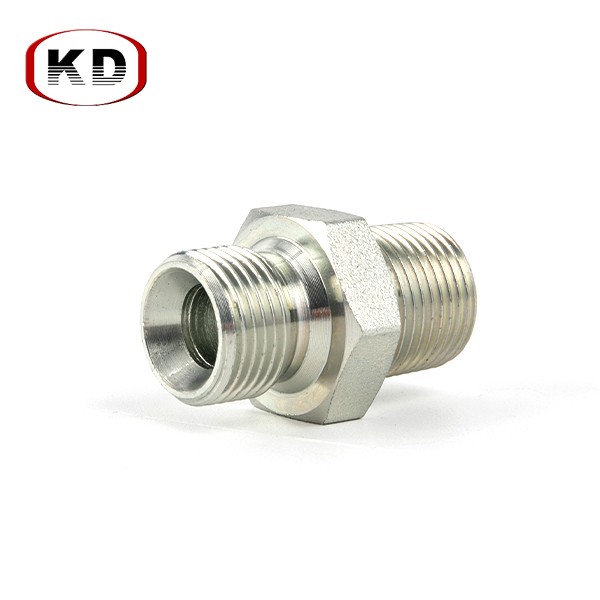Many years of foreign trade experience.
Strong production capacity, and massive stock to make sure the delivery time.
ISO quality process to make sure every piece qualifies.
One-to-one service, OEM service, provides alternative efficient solutions.

 By Admin
By Admin
Hydraulic hose adapters play a crucial role in the overall efficiency and performance of a hydraulic system in several ways:
Leak Prevention: High-quality hydraulic hose adapters are essential for maintaining a leak-free hydraulic system. Properly designed and installed adapters create secure connections that prevent hydraulic fluid from leaking. Leaks can lead to significant losses in system pressure and fluid volume, resulting in decreased efficiency. Over time, leaks can also cause environmental contamination and pose safety hazards. Regular inspection and maintenance of adapters are crucial for early detection and prevention of leaks.
Flow Optimization: The design and sizing of hydraulic hose adapters play a crucial role in optimizing fluid flow. Adapters must match the flow characteristics of the system to prevent bottlenecks. Incorrectly sized adapters can create turbulence and flow restrictions, leading to pressure drops and inefficiencies. Streamlined adapter designs with smooth internal surfaces reduce resistance to fluid flow, ensuring that the system operates at peak efficiency with minimal energy loss.
Pressure Handling: Hydraulic systems often operate under high pressures, and adapters must be capable of withstanding these conditions. Adapters not rated for the system's maximum pressure can fail catastrophically, causing sudden pressure loss, equipment damage, and safety risks to personnel.
Durability and Reliability: Adapters made from robust materials such as stainless steel, brass, or corrosion-resistant alloys provide durability and longevity. These materials are chosen for their resistance to wear, corrosion, and fatigue, even in harsh environments. Durable adapters reduce the frequency of replacements and maintenance, leading to lower operational costs and increased system uptime. Reliable adapters ensure consistent system performance, reducing the risk of unexpected failures.
Ease of Maintenance: Adapters designed for ease of installation and removal facilitate maintenance activities. Quick-connect adapters, for example, allow for rapid connection and disconnection without the need for specialized tools. This simplifies maintenance procedures, reduces downtime, and improves overall operational efficiency. Easy-to-maintain adapters also encourage regular system inspections and timely replacements, further enhancing system reliability.
Minimized Pressure Loss: Hydraulic hose adapters with smooth internal surfaces and streamlined designs minimize turbulence and pressure loss within the system. Pressure loss can reduce the effectiveness of actuators and other hydraulic components, impacting the overall performance of the system. By minimizing pressure drops, well-designed adapters ensure that hydraulic fluid maintains its energy, enabling precise control and efficient operation of machinery.
Temperature Resistance: Hydraulic hose adapters must withstand the system's operating temperature range to ensure stable performance. Adapters that degrade or fail at high or low temperatures can cause system inefficiencies and potential failures. Materials used in adapter construction are selected based on their thermal stability and resistance to temperature extremes. Ensuring temperature compatibility prevents thermal-related issues, such as material degradation, seal failure, and fluid viscosity changes, maintaining consistent system performance.
60°BSPT Corrosion Resistance Double Use BSP Male fitting
